The death of Otto Warmbier, the University of Virginia undergraduate imprisoned for nearly 18 months by Pyongyang, culminates the shameful mistreatment of an American citizen at the hands of the North Korean regime. While on a brief excursion to the North Korean capital at the end of 2015, Warmbier attempted to remove a propaganda poster from a hotel wall, which Pyongyang deemed “a hostile act against the state.” At a show trial in March 2016, he was sentenced to a 15-year imprisonment at hard labor. Soon thereafter, in circumstances that remain unexplained and suspicious, Warmbier, a vigorous, athletic young man, lapsed into a coma that North Korea kept totally hidden from the outside world until earlier this month.
Warmbier was the latest pawn in Pyongyang’s decades-long effort to extract concessions from the United States in exchange for the release of American citizens imprisoned by the North. He has now paid for it with his life. Some U.S. citizens have been detained for highly risky actions, including the capture of two U.S. journalists seeking to cross the China-North Korea border, purportedly to make contact with dissidents inside the North. High-level U.S. envoys (including former President Clinton, former U.S. Ambassador to the United Nations Bill Richardson, and Lieutenant General James Clapper, then still serving as Director of National Intelligence), have all traveled to Pyongyang to secure the return of imprisoned Americans. But North Korea has never gained meaningful leverage through these negotiations.
Leaders in Pyongyang nonetheless believed there was political benefit in compelling former or current U.S. officials to travel to the North. But these cases have reinforced the perception of North Korea as cruelly exploiting concerns over the well-being of U.S. citizens, no matter what the circumstances of their detention. In several instances when U.S. citizens were imprisoned by the North, their families agreed to pay some of the costs associated with their detention. To this point, however, there has never been a case where negotiations over the return of American civilians held by the North resulted in U.S. concessions, or provided Pyongyang with a political opening to the United States.
Pyongyang’s strategy, Otto’s tragedy
Viewed in a larger context, Pyongyang’s incarceration strategy has been part of a game plan that goes well beyond relations with the United States. The arrests and imprisonments of American citizens are routinely depicted as violations of North Korean law and serious infringements of North Korean sovereignty. This has reinforced the perceived power of the North Korean state over its own population. The primary purpose has quite possibly been less to wring concessions from the United States, and more to warn and intimidate its own population.
But there was very little precedent for Warmbier’s arrest and imprisonment over what seems a trivial matter utterly disproportionate to the punishment meted out to him. In meetings with former U.S. officials last year, North Korean officials professed no knowledge of the conditions of his imprisonment, suggesting that his case was entirely controlled by the Ministry of State Security (MSS). For a seemingly minor infraction (one for which Warmbier tearfully apologized at his show trial), his sentence was exceedingly harsh. In addition, Pyongyang failed to honor its international treaty obligation to provide consular access by the Swedish Embassy in Pyongyang, which represents U.S. interests in the absence of an American diplomatic presence in North Korea. Pyongyang also disclosed no information about Warmbier’s physical condition until the very final days of his imprisonment.
The reason for this information blackout only became apparent in very early June, when North Korea’s U.N. Mission informed Deputy Assistant Secretary of State Joseph Yun that Warmbier had been in a coma for virtually the entirety of his post-trial incarceration. North Korea claimed that Warmbier contracted botulism and then lapsed into a coma following ingestion of a sleeping pill, but medical experts deem this claim extremely suspect. It raised obvious concerns that North Korean officials were seeking to mislead the United States about the true reasons for Warmbier’s incapacitation.
When Deputy Assistant Secretary Yun (accompanied by two U.S. military doctors) arrived in Pyongyang six days later, it was immediately evident that Warmbier was in a vegetative state, and the United States demanded his unconditional, immediate release. His near immediate departure suggested that MSS had concluded that the value of his continued incarceration had plummeted to zero. In light of Warmbier’s death, it seems clear that his physical condition had continued to deteriorate during his incarceration, with his jailers grasping that a young American was about to die in captivity.
Following Warmbier’s return to the U.S., medical personnel confirmed the worst about his physical condition, characterizing Warmbier as being “in a state of unresponsive wakefulness.” The doctors determined that he had experienced severe brain damage during his prolonged coma as well as acute muscular atrophy. But the doctors found no traces of botulism, nor did they detect any evidence of physical abuse at the hands of his North Korean captors. But it was abundantly evident that Warmbier (despite his youth and previous robust health) had suffered an acute cardiovascular incident, evidently very soon after his trial.
Time for action
We might never know what happened to Otto Warmbier, but the Trump administration must now make every effort to determine the real reasons for his incapacitation and subsequent death. Numerous questions remain to be answered. In view of his profound physical and cerebral decline, why did his captors deny the United States government and the Warmbier family any information about his physical condition, and why was he not released until more than a year later? The U.S. must hold Pyongyang accountable for its actions and seek to elicit a credible explanation of what really happened to him.
However, Warmbier was also ensnared in the acute and increasingly ominous acceleration of North Korea’s nuclear weapons and missile development that coincided with his period of incarceration. Meanwhile, North Korea is voicing increased anxiety about supposed U.S. efforts to undermine the regime, which U.S. officials regularly deny. But President Trump has declared that the prospect of a North Korean test of an intercontinental ballistic missile (ICBM) is an unacceptable threat to the American homeland. Secretary of Defense Jim Mattis (in June 12 testimony to the House Armed Services Committee) declared that North Korea was “the most urgent and dangerous threat to [international] peace and security.” These circumstances raise the possibility of the most acute crisis in Northeast Asia since the Korean War.
The immediate challenge Washington faces is to minimize the possibility of North Korea adding additional victims to the list of U.S. hostages. The time is long overdue for the State Department to declare North Korea off limits for American citizens, except for humanitarian needs or for visits by U.S. government personnel. This should extend to imposing sanctions on travel agencies advertising tours to the North, lest more Americans fall prey to treatment akin to what Otto Warmbier experienced.
There is also the larger issue of whether credible diplomacy with North Korea is even possible. Disclosure of what actually happened to Otto Warmbier, not the contrived explanation offered to U.S. diplomats, should be the first order of business. In addition, three U.S. citizens (all ethnic Koreans) remain imprisoned in the North. Two of these detainees were affiliated with a university program in Pyongyang for training young North Koreans from elite families and were arrested in recent months; the unconditional release of these remaining prisoners must be an immediate priority.
At the same time, a recent article in the New York Times reported comments by former and current U.S. officials suggesting that the Trump administration is so intent on negotiations with Pyongyang that it should not let horrific mistreatment of an American prisoner stand in the way of nuclear diplomacy. We beg to differ. Now more than ever, the United States and the entire international community need to reflect on the depravity of the North Korean regime and its responsibility for the tragically short life of a young American.
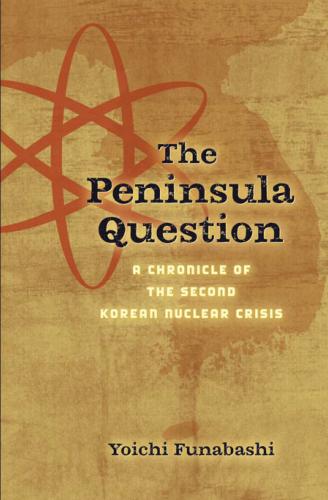
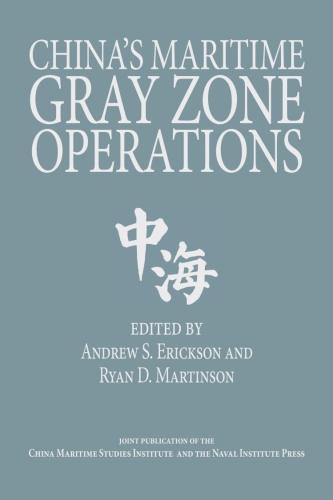
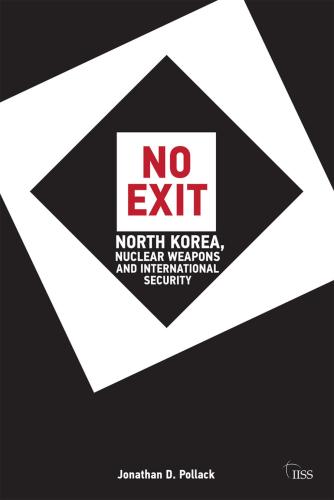
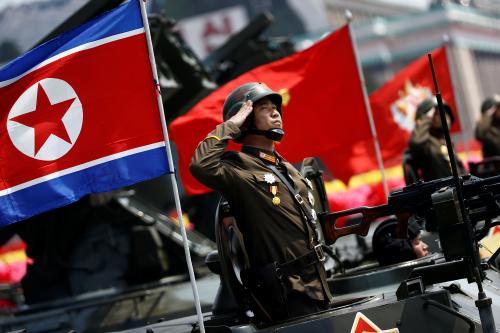
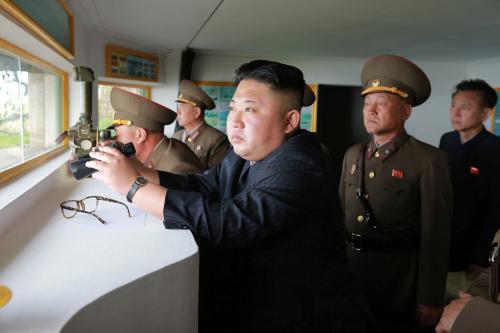
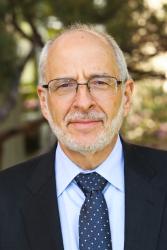
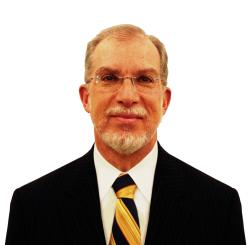
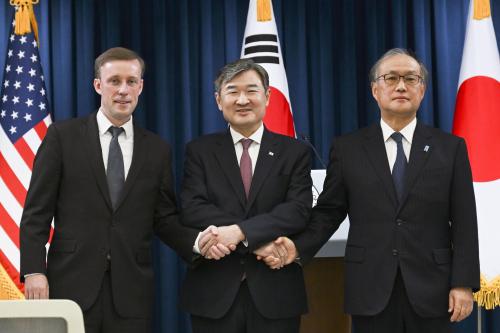
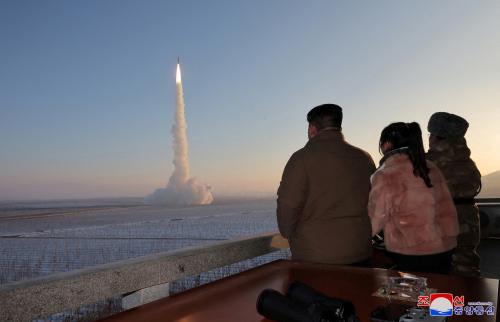
Commentary
What the United States should do about the death of Otto Warmbier
June 20, 2017